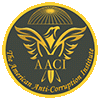Rt. Hon Bruce George, Former President of the OSCE Parliament Assembly and Vice President of the NATO Parliamentary Assembly
and
Simon Kimber MSc
Executive Summary
I have been obsessively interested in electoral corruption since I first began my studies at the University of Wales and took a course covering the history of corruption. After over thirty years in electoral politics my interest in the subject persists to this day. My first attempt to win an election was in a small Welsh valley town called Aberdare. My attempt to win the parliamentary seat failed when I was not selected as the candidate for the Labour Party as the result of a deal between some of the local trade unions. Two of the unions had made an agreement over which candidate to support and this swung the decision against me. I was extremely angry and saw it as a corrupt practise, but in reality this was just how trade unions worked within the Labour Party at the time. As a firm believer in the mantra if you can’t beat them, join them, I subsequently became a trade union member and have remained so to this day! After that initial failed attempt to win a seat, I was eventually chosen to contest the constituency of Walsall South on behalf of the Labour Party – a seat everyone at the time believed was unwinnable. So it was with some surprise that in 1974 I won the seat and entered Parliament for the first time. I would later be re-elected nine times before eventually choosing to retire in 2010. Over the course of my 35 plus years in parliament, democracy and elections became one of the subjects I focused on both at home and abroad. As a Member of Parliament I was also chosen to sit on the UK delegations to the NATO and OSCE Parliamentary Assemblies and through my membership of both organisations spent much time travelling the world as an election observer. As a result of this I have witnessed first hand a significant amount of election fraud.
In this paper I offer a detailed examination of election fraud, both looking at the history of the problem and it’s continuing influence in the world today. I hope by offering my insights and experience gained over the last forty years I can provide a useful perspective on the matter at hand. As will become clear in the pages that follow election fraud is not an issue for the history books. Whilst the perception may be that this is no longer a problem for Western democracies I hope to show that this is an issue that all democracies should be concerned with, both old and new. To demonstrate this I will offer a number of case studies including the UK and the USA to show that even in the oldest of democracies we must still be vigilant.
Epilogue by L. Burke Files DDP CACM, President of The AACI (page 23).
For reprint and more information you may contact us at research@theaaci.com




